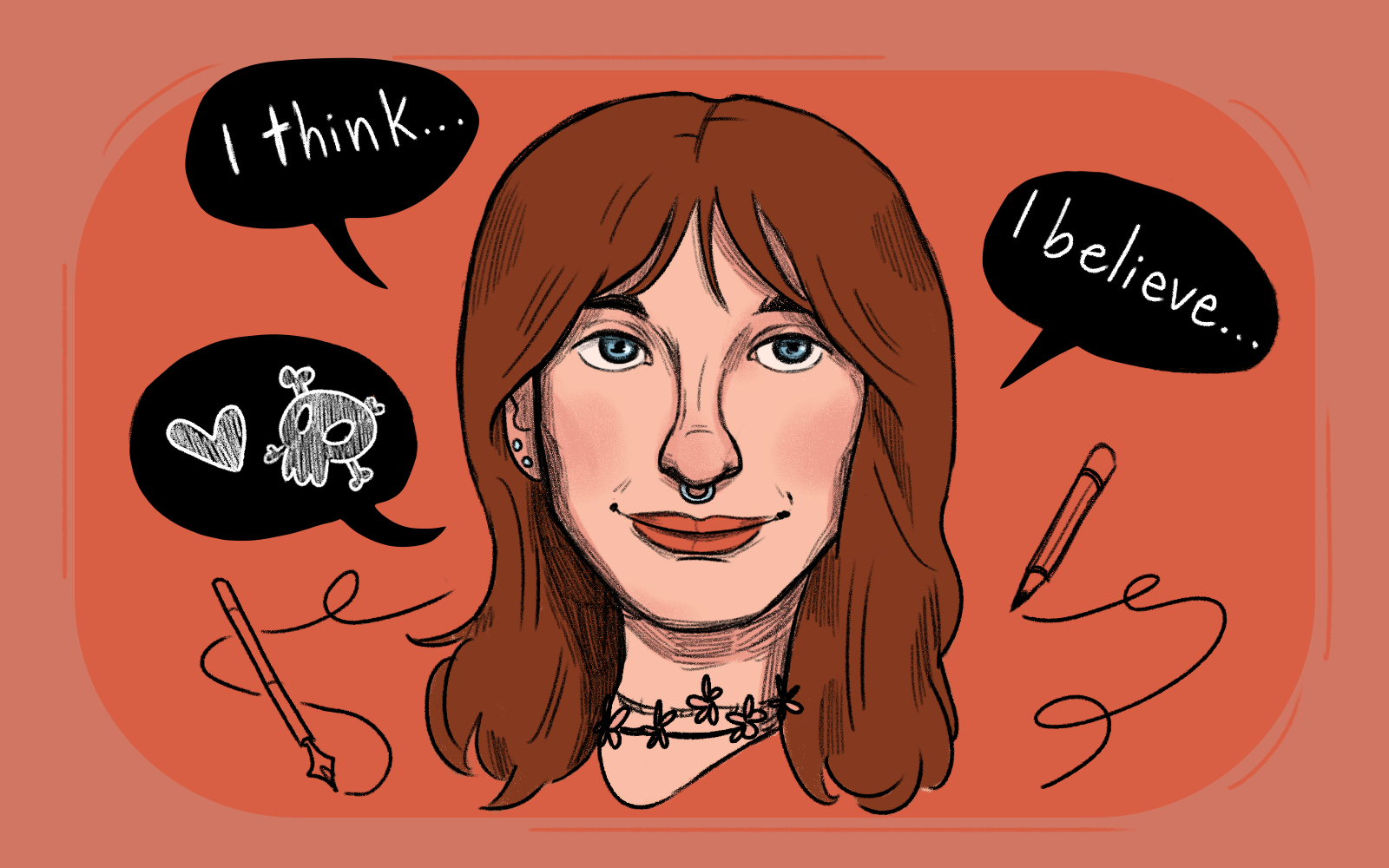What I’ve learned from my time as an Opinions Editor.
My first year at Concordia did not go according to plan. In September, I had the idea that I would lay low and scope out all the clubs and committees before I joined anything—a semester to get settled, and then I could think about where I wanted to get involved. However, within the first few weeks of school, I wandered into the club fair and had a conversation with The Concordian’s lovely Graphics Editor (shoutout to Carleen). The team was looking for an Opinions Editor, and I thought, Excellent—I love editing, and I have opinions.
Eight months later, this is the last opinions piece I will write as the Opinions Editor, so it only made sense to reflect on the experience and (dare I say) share my opinion. I’ve learned so much, and this whole experience has left me with a lot to think about, both as an editor and as a writer.
Though writing has always been one of the most important parts of my life, I have always found it nerve-wracking. A piece of writing is a piece of yourself on display for people to scrutinize. I have sometimes compared writing to stripping down and announcing, Here I am! Point out all my flaws! What if people disagree? What if they misunderstand? What if they don’t like it? Writing opinions pieces is especially tough because they display your own thoughts and values.
This is particularly true because opinions evolve, sometimes so drastically and so quickly. We might receive more information, situations might develop, or we might simply grow as people. I’m sure we’ve all looked back on something we said a few years ago (maybe even a few weeks ago) and thought to ourselves, Did I really think that? Sometimes we become strangers to ourselves. With writing, however, these past versions of ourselves exist in a physical form, words frozen in the moment they were published. It’s difficult to fight the urge to double back and scrutinize every word, to agonize over what should have been worded better or what could have been said instead. It’s a constant act of moving forward.
Editing other people’s opinions is a unique experience as well. I’m grateful for every contributor to the opinions section, and it has been interesting to engage with such a variety of perspectives. I’ve experienced the learning curve of figuring out how much to interfere in editing. To what extent do I let my own ideas influence my editing? How do I address the opinions that I disagree with? Is it even my place to decide what opinions are valid? For the most part, I try to step back and let opinions remain untampered with.
Another question that always arises in this job is what to write about. There’s great value in light reads and fluffy articles, and I had such a fun time writing them—but everytime I did, I wondered whether I should be directing my energy toward speaking about something more important. Yet when I did try to tackle more serious issues, I went in circles wondering if I was doing the issue justice, if I was getting facts right, and if I was in a position to write what I was writing.
Sometimes the answers only come in hindsight. I’m sure all summer I’ll jolt awake in a cold sweat with an article idea, only to remember that the days of weekly article writing are over. Mistakes, too, are only apparent when it’s too late. (A small example: Catching typos after publication, the cause of many sleepless nights.)
Working in a position like this, it’s inevitable that there will be misunderstandings, miscommunications, and mishaps. I can only hope that I have handled these with grace, while knowing that all I can do now is learn from them. If I could start from the beginning, there are many things I would have done differently, but I’m grateful for the learning experiences I’ve gained.
Beyond learning experiences, working at The Concordian has been a great experience in general. I couldn’t wait to pick up the paper every other Tuesday—there’s a unique joy that comes from being part of something, especially with such a dedicated team. This is why I’ll definitely try to stay a part of The Concordian in one way or another for the rest of my time at this university. I know there are more lessons to be learned, and I’ve also just had a lot of fun. I genuinely loved my treks to Loyola (the campus is so much prettier than SGW) and there’s something about the weekly pitch meetings that just kind of hit—especially when Keven brought cookies.
